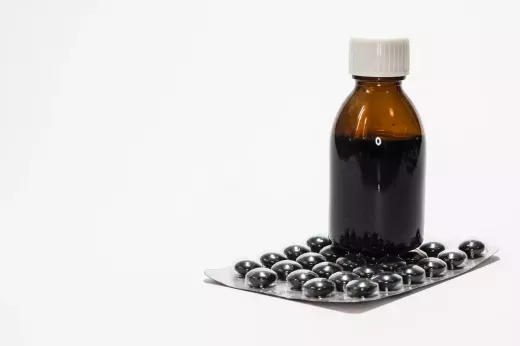What is Levitra?
Levitra is a medication that is used to treat erectile dysfunction (ED) in men. It works by relaxing the muscles in the walls of blood vessels, allowing for increased blood flow to the penis. This increased blood flow is what allows men with ED to achieve and maintain an erection.
Levitra is available in tablet form and is taken orally. It is usually taken about 30 minutes to an hour before sexual activity, and its effects can last for up to five hours.
How does Levitra work?
Levitra works by inhibiting the enzyme phosphodiesterase type 5 (PDE5), which is responsible for breaking down a chemical called cyclic guanosine monophosphate (cGMP). cGMP is a chemical that is produced in the body when sexual stimulation occurs, and it is what causes the blood vessels in the penis to relax and widen. By inhibiting PDE5, Levitra allows cGMP to build up in the body, which leads to increased blood flow to the penis and a firmer, longer-lasting erection.
Tips for taking Levitra for best results
While Levitra is an effective medication for treating ED, it is essential to take it correctly to achieve the best results. Here are three tips for taking Levitra that will help you maximize the benefits of the medication.
Tip 1: Follow dosage instructions carefully
The first tip for taking Levitra is to follow the dosage instructions carefully. The recommended starting dose of Levitra is 10 mg, taken about 30 minutes before sexual activity. However, your doctor may adjust your dose based on your age, medical history, and other factors.
It is important not to take more than one dose of Levitra in a 24-hour period, and you should never take more than your prescribed dose. Taking too much Levitra can increase your risk of side effects, including headaches, dizziness, and nausea.
Tip 2: Take Levitra on an empty stomach
Another tip for taking Levitra is to take it on an empty stomach. Food can interfere with the absorption of Levitra, making it less effective. To ensure that you get the most out of your medication, take it at least 30 minutes before a meal or two hours after a meal.
If you need to take Levitra with food, try to avoid high-fat meals, as these can further slow down the absorption of the medication. Instead, opt for a light meal or snack that is low in fat.
Vardenafil | Levitra | SIDE EFFECTS | How to use the RIGHT WAY | Erectile Dysfunction
Tip 3: Avoid certain foods and medications
Finally, it is important to avoid certain foods and medications when taking Levitra. Grapefruit and grapefruit juice can increase the amount of Levitra in your bloodstream, which can increase your risk of side effects. It is best to avoid grapefruit and grapefruit juice altogether when taking Levitra.
You should also avoid taking other medications that can interact with Levitra, such as nitrates, which are commonly used to treat chest pain. Combining Levitra with nitrates can cause a dangerous drop in blood pressure.
Nitrates & Erectile Dysfunction | Erection Problems
Side effects of Levitra
Like all medications, Levitra can cause side effects. The most common side effects of Levitra include headache, flushing, nasal congestion, and indigestion. These side effects are usually mild and go away on their own within a few hours.
Less common side effects of Levitra include dizziness, back pain, and vision changes. If you experience any of these side effects and they persist or become severe, you should contact your doctor.
In rare cases, Levitra can cause a sudden loss of vision or hearing, or a painful erection that lasts for more than four hours. If you experience any of these symptoms, you should seek medical attention immediately.
When to seek medical help
If Levitra is not working for you, or if you are experiencing side effects that are interfering with your daily life, you should contact your doctor. Your doctor may be able to adjust your dose or prescribe a different medication that is better suited to your needs.
In some cases, erectile dysfunction can be a sign of an underlying health condition, such as heart disease or diabetes. If you are experiencing ED, it is important to talk to your doctor to rule out any underlying health issues.
Alternatives to Levitra
If you are unable to take Levitra, or if it is not effective for you, there are other medications that may be able to help. Two other commonly prescribed medications for ED are sildenafil (Viagra) and tadalafil (Cialis). Both of these medications work in a similar way to Levitra, by increasing blood flow to the penis.
Your doctor can help you determine which medication is right for you based on your medical history and other factors.








.png?size=50)

